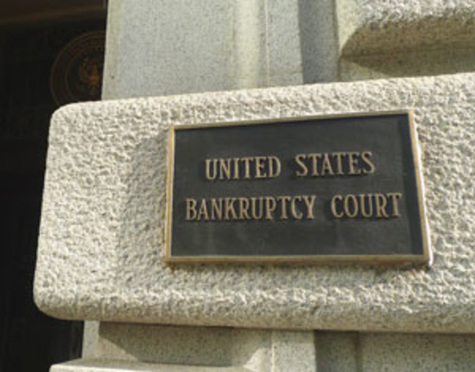Francis J Lawall And John Henry Schanne Ii

September 12, 2019 | The Legal Intelligencer
Same Class, Different Recoveries—No Bar to Plan ConfirmationEqual treatment of claims in the same class within a plan of reorganization is an important creditor protection in Chapter 11. However, is it possible to provide certain benefits to some creditors within a single class and not others without running afoul of the Bankruptcy Code?
By Francis J. Lawall and John Henry Schanne II
7 minute read

August 02, 2018 | The Legal Intelligencer
Waiver of Right to Seek Bankruptcy Protection RevisitedThe Bankruptcy Code and accompanying Rules of Procedure attempt to create a nationwide legal framework for administering bankruptcy cases. However, to initially determine whether a corporate entity can seek bankruptcy protection, courts must also consider the state law where it is chartered to determine who possesses the requisite authority to file on a debtor's behalf.
By Francis J. Lawall and John Henry Schanne II
1 minute read

September 14, 2017 | The Legal Intelligencer
Profit Sharing Ruled an Unenforceable Anti-Assignment RestrictionA fundamental benefit of Chapter 11 is a debtor's ability to assume and assign executory contracts and unexpired leases over the objection of a nondebtor counterparty, even when the contract contains otherwise valid anti-assignment provisions. Moreover, as demonstrated in a recent decision by the U.S. District Court for the District of Delaware, this statutory tool can be used despite its negative impact upon the underlying economics of the original contract, as in Antone v. Haggen Holdings (In re Haggen Holdings), 2017 U.S. Dist. LEXIS 139272 (D. Del. Aug. 30).
By Francis J. Lawall and John Henry Schanne II
5 minute read

December 04, 2015 | The Legal Intelligencer
Junior Claims Paid Ahead of Seniors in a Section 363 SaleThe U.S. Bankruptcy Code contains carefully created priority rules that dictate the order in which claims are entitled to be paid. For example, secured creditors have the right to be paid from the proceeds of their collateral, and claims incurred during bankruptcy generally must be paid ahead of all other creditors. Prepetition, general unsecured creditors, although not at the very bottom of the ladder, typically cannot be paid until secured, administrative and priority creditors are paid first. As a result, it is often difficult to enlist the support of unsecured creditors during the case when there are no funds to pay them. To solve this dilemma, bankruptcy professionals have devised a number of schemes to side-step the strict bankruptcy waterfall payment rules that otherwise would control. The U.S. Court of Appeals for the Third Circuit decision in In re ICL Holding, 802 F.3d 547 (3d Cir. Del. 2015), aff'g sub nom United States v. LCI Holding (In re LCI Holding), 519 B.R. 461 (D. Del., 2014), represents one of the more creative workarounds to date.
By Francis J. Lawall and John Henry Schanne II
7 minute read

December 03, 2015 | The Legal Intelligencer
Junior Claims Paid Ahead of Seniors in a Section 363 SaleThe U.S. Bankruptcy Code contains carefully created priority rules that dictate the order in which claims are entitled to be paid. For example, secured creditors have the right to be paid from the proceeds of their collateral, and claims incurred during bankruptcy generally must be paid ahead of all other creditors. Prepetition, general unsecured creditors, although not at the very bottom of the ladder, typically cannot be paid until secured, administrative and priority creditors are paid first. As a result, it is often difficult to enlist the support of unsecured creditors during the case when there are no funds to pay them. To solve this dilemma, bankruptcy professionals have devised a number of schemes to side-step the strict bankruptcy waterfall payment rules that otherwise would control. The U.S. Court of Appeals for the Third Circuit decision in In re ICL Holding, 802 F.3d 547 (3d Cir. Del. 2015), aff'g sub nom United States v. LCI Holding (In re LCI Holding), 519 B.R. 461 (D. Del., 2014), represents one of the more creative workarounds to date.
By Francis J. Lawall and John Henry Schanne II
7 minute read

January 16, 2015 | The Legal Intelligencer
Chapter 11 Plan Assumes Medicare, Medicaid Provider AgreementsNearly every assisted living and nursing facility in the country depends heavily upon its Medicare and Medicaid provider agreements to fund the cost of caring for their residents. Termination by the government of either or both typically results in closure or sale of the affected facility.
By Francis J. Lawall and John Henry Schanne II
6 minute read

January 16, 2015 | The Legal Intelligencer
Chapter 11 Plan Assumes Medicare, Medicaid Provider AgreementsNearly every assisted living and nursing facility in the country depends heavily upon its Medicare and Medicaid provider agreements to fund the cost of caring for their residents. Termination by the government of either or both typically results in closure or sale of the affected facility.
By Francis J. Lawall and John Henry Schanne II
6 minute read

July 29, 2014 | The Legal Intelligencer
Limits on Enforcement of Bankruptcy Code in Foreign TransactionsThe application of U.S. bankruptcy law upon transactions occurring outside the United States is complex and oftentimes heavily affected by foreign treaties, local statutes and the underlying factual circumstances. Because energy markets in particular are dominated by international trade, case developments that impose limits on the reach of the U.S. Bankruptcy Code should be of particular interest to the industry. One such recent decision was issued by the U.S. District Court for the Southern District of New York in Securities Investor Protection v. Bernard L. Madoff Investment Securities, 2014 U.S. Dist. LEXIS 91508 (S.D.N.Y. July 6, 2014).
By Francis J. Lawall and John Henry Schanne II
7 minute read

January 17, 2014 | The Legal Intelligencer
Court Upholds Creditor-Friendly Liquidation ProcedureThe statutory safe-harbor provisions within the U.S. Bankruptcy Code provide nondebtor parties to certain types of agreements, such as swap and forward contracts, with the unique right to terminate based solely upon the commencement of bankruptcy and to immediately liquidate the damages arising from such termination despite the automatic stay.
By Francis J. Lawall and John Henry Schanne II
6 minute read

June 15, 2012 | The Legal Intelligencer
Justices Affirm Secured Creditor's Right to Credit BidOn May 29, the U.S. Supreme Court issued a unanimous decision holding that a debtor cannot obtain confirmation of a Chapter 11 "cramdown" plan that provides for the sale of collateral free and clear of a secured creditor's lien without permitting the lienholder to credit bid at the sale.
By Francis J. Lawall and John Henry Schanne II
6 minute read
Trending Stories
- 1Munger, Gibson Dunn Billed $63 Million to Snap in 2024
- 2January Petitions Press High Court on Guns, Birth Certificate Sex Classifications
- 3'A Waste of Your Time': Practice Tips From Judges in the Oakland Federal Courthouse
- 4Judge Extends Tom Girardi's Time in Prison Medical Facility to Feb. 20
- 5Supreme Court Denies Trump's Request to Pause Pending Environmental Cases



